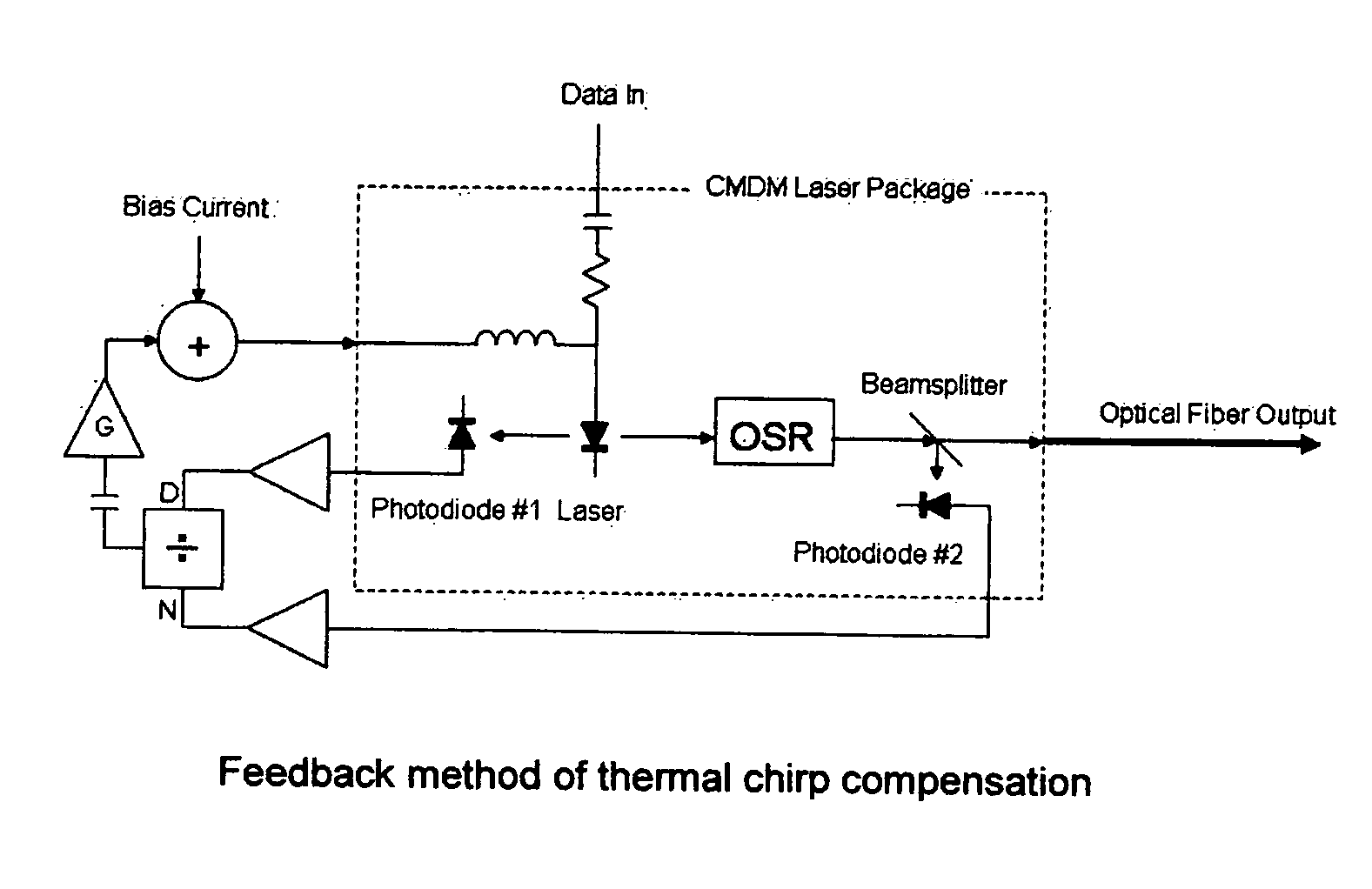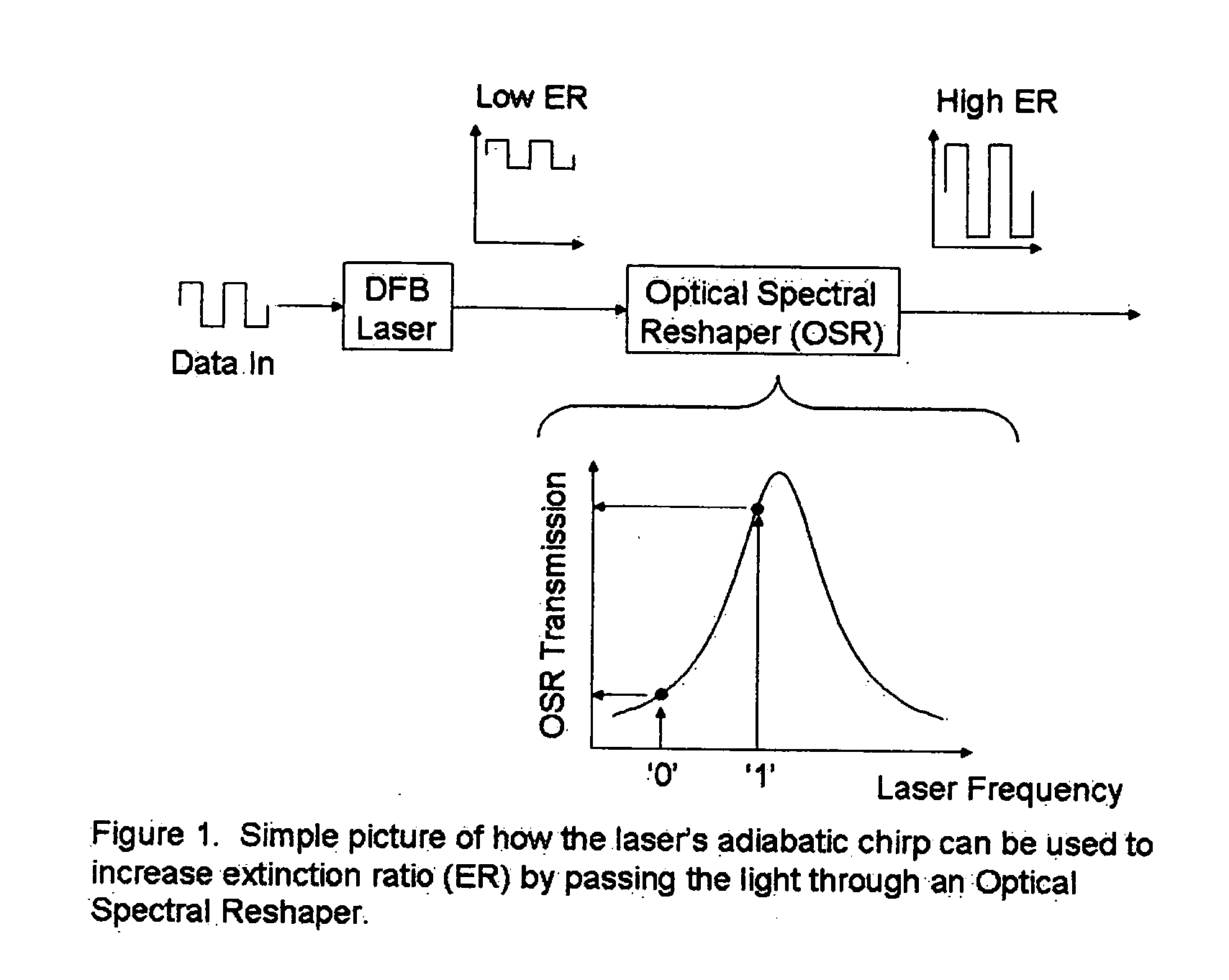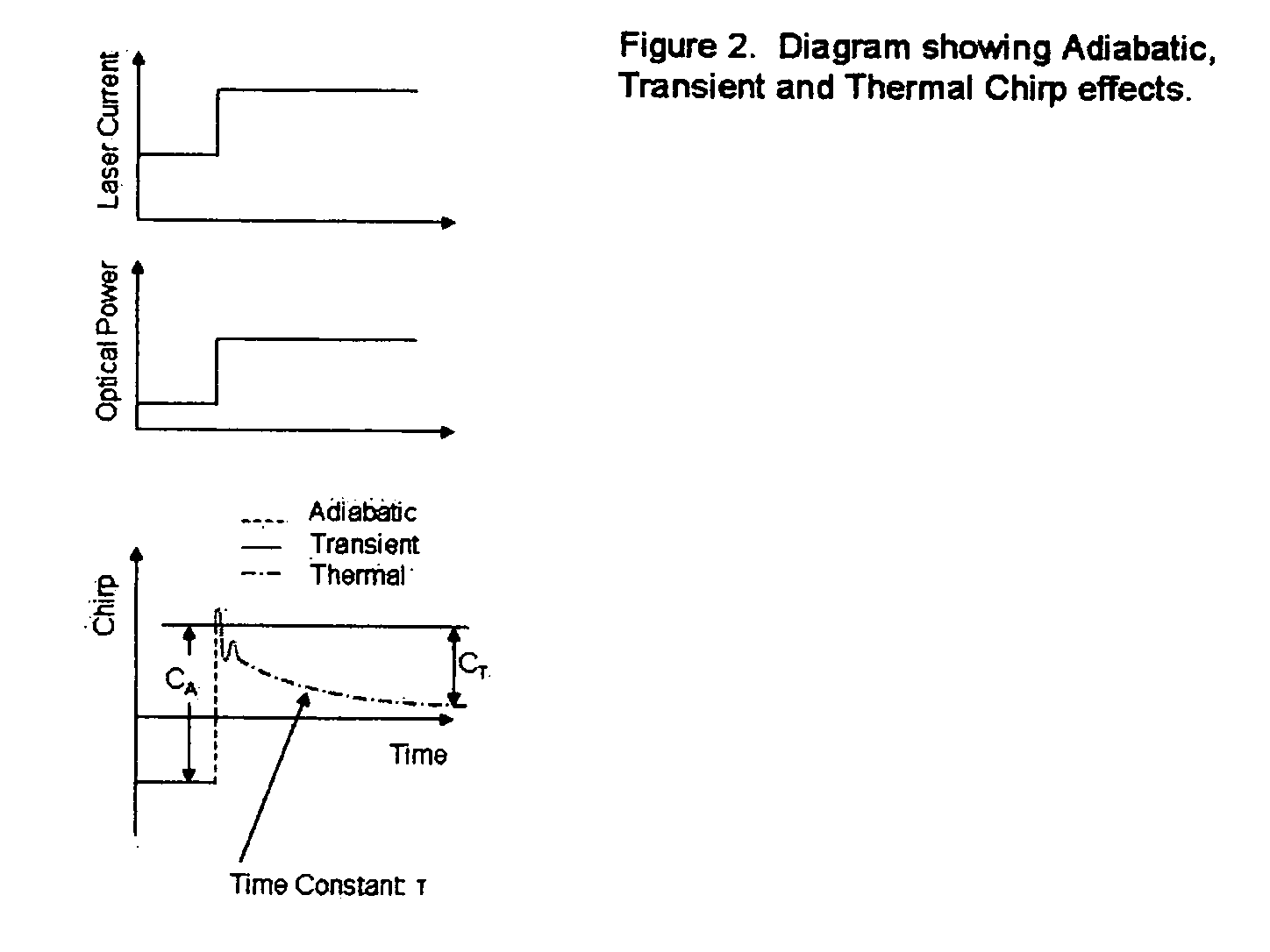Thermal chirp compensation systems for a chirp managed directly modulated laser (CML(TM)) data Link
a direct modulated laser and compensation system technology, applied in the field of signal transmission, can solve the problems of thermal chirp, general undesirable thermal chirp, and distortion of optical output from desired waveform, and achieve the effect of reducing the effect of thermal chirp
- Summary
- Abstract
- Description
- Claims
- Application Information
AI Technical Summary
Benefits of technology
Problems solved by technology
Method used
Image
Examples
Embodiment Construction
[0062] Thermal Chirp Compensation By The Feed-Forward Technique
[0063] The feed-forward approach of thermal chirp compensation is essentially an electronic equalization technique. Alexander et al. (S. B. Alexander, D. Welford, D. vL. Marquis, “Passive Equalization of Semiconductor Diode Laser Frequency Modulation,” J. Lightwave Technology, vol. 7, no. 1, pp 11-23, January 1989) described an electronic equalization system for purely frequency-modulated lasers. Their technique was meant for free-space communications applications which do not suffer from dispersion. This prior art was only concerned with correcting the frequency modulation of the laser.
[0064] The present invention, on the other hand, is tailored for the CML™ laser transmitter, for which the combination of AM and FM modulation need to be corrected. The method disclosed in the present invention can be adapted to equalize either the FM or AM output of the CML™. This is an important aspect for fiber-optic transmission whe...
PUM
 Login to View More
Login to View More Abstract
Description
Claims
Application Information
 Login to View More
Login to View More - R&D
- Intellectual Property
- Life Sciences
- Materials
- Tech Scout
- Unparalleled Data Quality
- Higher Quality Content
- 60% Fewer Hallucinations
Browse by: Latest US Patents, China's latest patents, Technical Efficacy Thesaurus, Application Domain, Technology Topic, Popular Technical Reports.
© 2025 PatSnap. All rights reserved.Legal|Privacy policy|Modern Slavery Act Transparency Statement|Sitemap|About US| Contact US: help@patsnap.com



